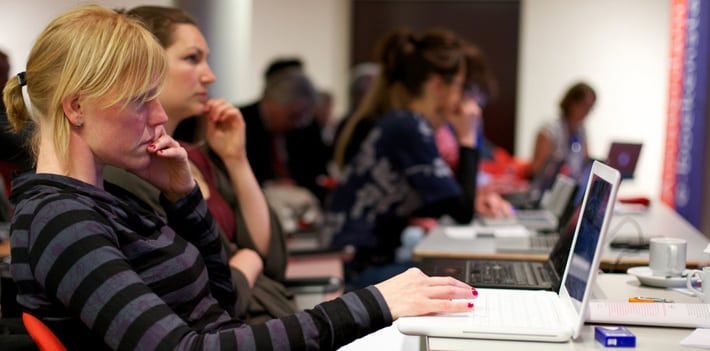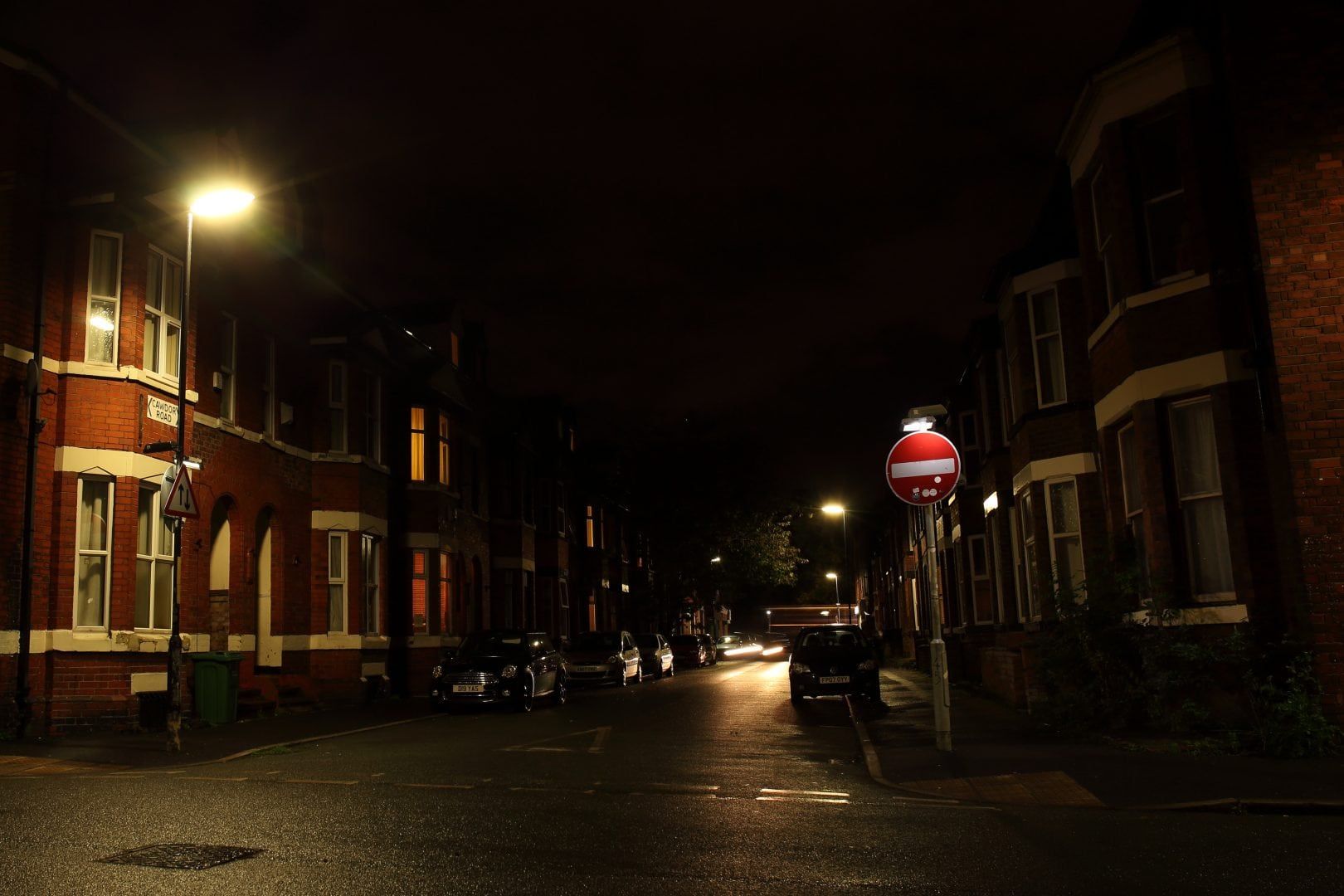I picked up Amer Anwar’s debut novel, Brothers In Blood, because it was set in Southall, the place that I’m from. When I met him, I was on my way from Southall to get a coach up to Manchester. He was on his way back from an event promoting the book, which had just been released on September 6th.
Southall, sometimes called London’s Little India, is the sort of place where the benefits of multiculturalism are most evident. It’s been a town of immigration for a long time, with people from Wales, Ireland, India, Pakistan, Somalia and Poland making it their home. I’ve always had positive associations with the place, so I was intrigued to read a book exploring the darker side of the community. In Brothers In Blood, two friends, Zaq and Jags, search for a missing Sikh woman. Zaq is an ex-con blackmailed into becoming a detective; he’s determined to do right but often forced to do wrong. His search takes him deeper into a criminal underworld and his determination gets him in and out of trouble. The book is made up entirely of South Asian characters – it even contains Punjabi dialogue – and the gritty, violent plot makes for a gripping crime thriller.
There are plenty of unexpected twists and turns in the novel, but the story of actually getting the book published is just as eventful. I asked Anwar how he got started on the book.
“Where to start? I wrote when I was in school, but after the age of thirteen, no one’s interested in fiction. It’s all essays and factual. I could obviously write because my teachers kept calling me up thinking I’d copied my essays from books, which should have been a sign! But nobody ever said, “maybe you should look at writing as a career.” People talk a lot about working class opportunities and I think that’s case and point – nobody ever saw or thought that this guy could have a career in writing. No-one ever suggested it, so I never thought about it.
“But I’d always wanted to write, because I’d always been a reader. I started reading adult fiction when I was about ten. First it was second world war books, but adult ones – so quite violent. And then horror, fantasy, sci-fi and finally crime.
“I started reading a lot of Elmore Leonard. His writing wasn’t always cops and detectives – he would write the criminals. They were such great characters. For me, hanging out in Southall in my teens, there was all this gang stuff going on, drugs and fights etc. There were all sorts of stories. Hearing those stories and reading those books, I realised that you could write about these guys in Southall. I would have loved to read something like that. So I was waiting for someone to write that book. And nobody did. The more I thought that way, I realised that if I was ever going to write a book, I’d have to set it here. I’d have to use these characters.
“Then there were a couple of stories in the papers that gave me the germ of an idea and other things just started to stick to it over the years. But it was twenty years before I actually started writing and in that time nobody had written that Southall crime novel. Or, someone had written it, but it had never been published. Nobody wanted to publish it. And that’s sort of what ended up happening to me.
“I started doing some writing courses. First a real beginners course at an adult education center. Finishing that course, I thought, well now I’ve had an introduction, I can write this book. I sat down with the best of intentions and wrote about two pages. I looked at it the next day and thought, Jesus, this is bad. This is not good. So I gave up pretty quickly.
“The tutor told me that if you want to take it further, there’s a course at Birkbeck University; I needed the course to motivate me, to spur me on. At Birkbeck, my tutor asked what I wanted to gain from the course. I said straight out, I want to write a crime novel. I want to be published. She said alright then, start writing.
“So I had another crack at the first chapter. It still didn’t work. I picked up one of Elmore Leonard’s novels and read it to really find out how it worked. Normally I’d just read it and enjoy it, but this time I was trying to study it. At the same time I saw the film Payback with Mel Gibson, which I love. And with both of those two influences, I finally managed to nail that first chapter.”
I asked Anwar what he did once he’d finally got the first chapter finished.
“Well, I’d known about the Crime Writer’s Association Debut Dagger Award for a couple of years, but never had anything to send. But now I had this first chapter; I sent it off and forgot all about it. A couple of months later, I got a letter saying I’d been shortlisted.
“I went along to the award ceremony – the Debut Dagger (awarded for the first chapter of an unfinished novel) was the first up. They read out the shortlisted authors and then called my name. I was shocked. It was so surreal.
“After winning the award, I was contacted by four agents. They all wanted to read the rest of the book. I was like, yeah, about that… I’ve only written three chapters! I hadn’t mapped out a plot for the book, I had no idea where it was going. I was just writing to see what happened. One of them said that I could sign with her and send the book when it was finished. She asked how long it would take to finish? How long is a piece of string? I just plucked a figure out of the air. Six months?
“Five years later, I sent her a draft I was happy with. I’d written the book longhand, it ended up being around 150,000 words, which is big for a novel. I knew it had to be cut. Then I typed it up. By that point, I was doing an MA in creative writing at Birkbeck too and I was working full time. So it took a long time.
“In my head it was really good. I thought I just need to type it up, tweak it a little bit and send it off. But when I read it back, it was terrible. But the story was there.
“I went through, scene by scene, and started to write it again, fresh. A lot changed and by the fifth draft, I was happy to show it to my agent. They really liked it but gave a list of improvements. Going through the whole book again took about a year and then it went out on submission. My agent and the editors were really positive. It went out to about thirty publishers and got rejected by every single one.
“Their reasons were: it doesn’t quite fit our list, we don’t have the right mission plan, we’re not sure where or how we would sell this. The most telling one was: I could never see it breaking out to a broad audience.
“The worst thing was all the positive feedback they were giving the novel, they loved the way it was written, thought it had a great voice, great setting, gritty action. I thought, well if it’s got all that, what else do you want? There was one thing they weren’t saying. It’s got all Asian characters, set in an Asian community with lots of Asian references. Basically they felt it wouldn’t appeal to a broad (white) audience.
“We asked what needed changing? They said nothing. There was no way they could say, well it’s a little too asian. How would that look?
“Growing up, I was reading crime novels by white authors set in America. That didn’t deter me, didn’t detract from my enjoyment of them. So by the same token, the fact Brothers In Blood is set in an Asian community in London shouldn’t detract from the overall enjoyment of it being a crime thriller.
“I’d been working on the book for eight years. Nobody wanted to publish it. But I believed in it, my agent believed in it and all those publishers said it was a good book. So I thought, fuck it, I’ll publish it myself.
“I spent about six months on social media, watching how the big publishers launch their new books. I saw that they had all these graphics – my background is in design and artwork, so I thought, well I could do all that! And I saw that they sent their books out to book bloggers to create a buzz around a book. I contacted the same bloggers that they did.
“I set up a fake publishing company, with a virtual office address in East London. I designed a fake logo to go on the spine. I designed the cover. I learnt how to typeset a complete novel, then sent the files to the same printers all the big publishers use. It was on Amazon and I was able to get it into some Waterstones stores.
“I saw that it would take two years of me working on it, as my own publisher and my own marketing team. I needed the book to gain a momentum. I would go to events and meet authors and give them copies of the book. The fact that it won the Debut Dagger always got them interested. At one of these events I met Sharmaine Lovegrove who’d just set up Dialogue Books (an imprint at Little Brown dedicated to inclusivity).
“She read the book over a weekend and called me in for a meeting. She couldn’t believe that nobody had published it. She asked about the current publisher. I said, you’re looking at the current publisher! It became one of the first four acquisitions Dialogue Books made and went through another editing process.
“It essentially stayed the same book. It got a new cover, a new name and a great marketing and publicity push. Now it’s the Sunday Time Crime Club Star Pick for September and was recommended by The Observer Thrillers of the Month. This is ten years since I started writing it.
“Put simply, it does what a crime thriller should. Yeah it’s set in the Asian community, but so what? That’s exactly what we need; more working class voices, more BAME voices, LGBTQ voices. If tells a good story, it deserves to be published.”
Brothers In Blood certainly tells a good story. Zaq is an ex-con forced into looking for Rita, who goes missing to escape an overbearing family. The novel ranges from honour killings and arranged marriages to drug deals and fist fights. Anwar creates both loveable and evil characters and has an ear for witty dialogue – you’ll certainly learn some Punjabi swear words along the way. From its influences to its execution, Brothers In Blood is firmly rooted in the crime genre. It was one of the first crime thrillers I’ve ever read so I asked Anwar where someone should start if they want to get into crime fiction.
“Elmore Leonard definitely. Richard Stark is also amazing and Joe R. Lansdale, those are the three biggest influences on me. I reread them regularly. Its not just the great plot; its their styles.”
If readers are looking for more South Asian crime writers, Anwar also recommended A. A. Dhand, Khurrum Rahman and Abir Mukherjee. Though it seems that this list is growing as writers like Anwar show that a book about Asian characters does not need to be niche. The hard work seems to have payed off for Anwar: after ten years of working on the novel, Brothers In Blood is getting positive reviews and reaching a larger audience. Anwar is busy working on a sequel but for now you can find Brothers In Blood at all good bookstores (RRP £7.99).




![By Baresi franco [CC BY-SA 3.0 (https://creativecommons.org/licenses/by-sa/3.0)], from Wikimedia Commons](https://mancunion.com/wp-admin/admin-ajax.php?action=kernel&p=image&src=%7B%22file%22%3A%22wp-content%2Fuploads%2Fsites%2F6%2F1597px-CIS_Tower_by_night.jpg%22%2C%22thumbnail%22%3A%22%2C%22%7D&hash=63873c0f)













